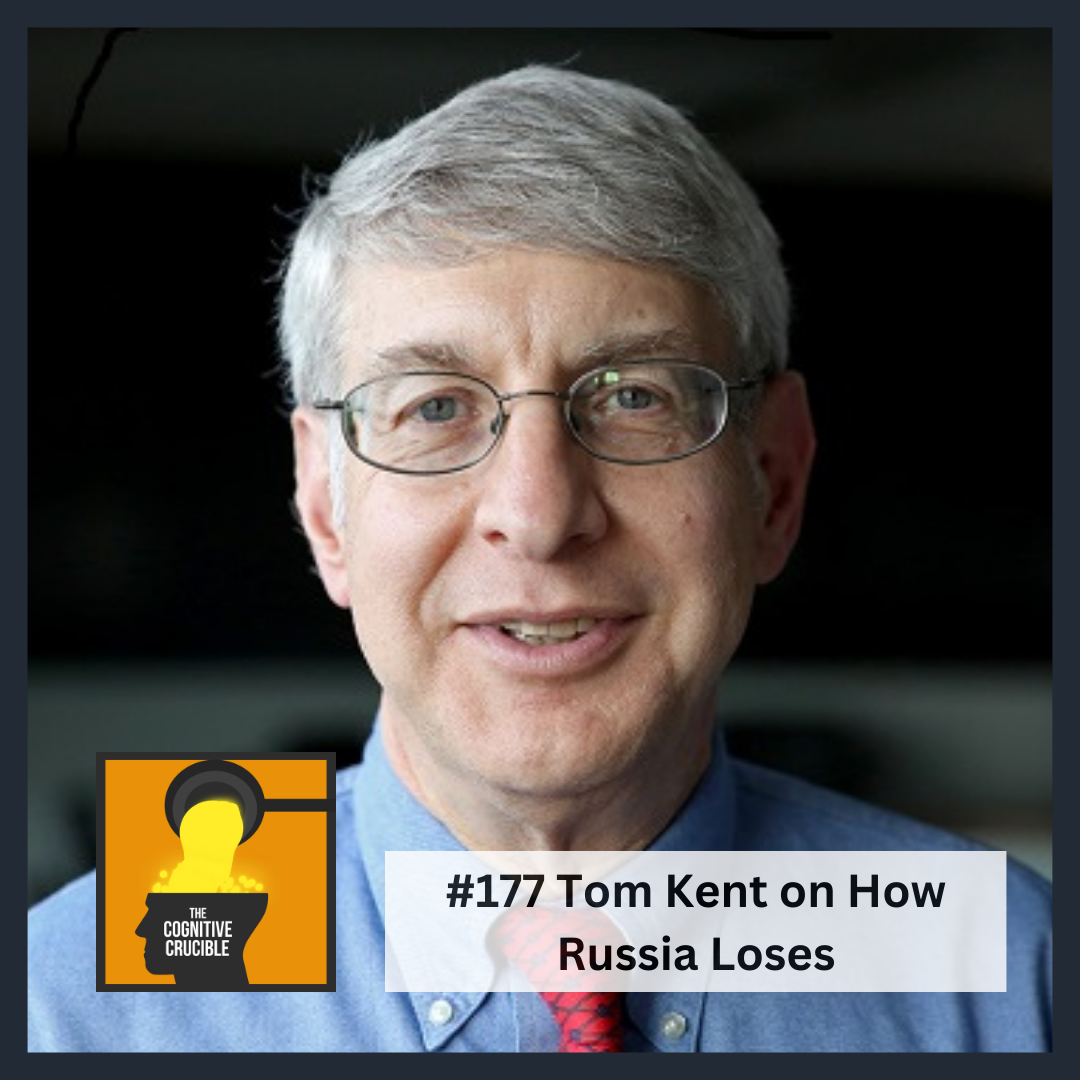
The Cognitive Crucible is a forum that presents different perspectives and emerging thought leadership related to the information environment. The opinions expressed by guests are their own, and do not necessarily reflect the views of or endorsement by the Information Professionals Association.
During this episode, Tom Kent returns to the Cognitive Crucible to discuss his latest book: How Russia Loses: Hubris and Miscalculation in Putin’s Kremlin. Vladimir Putin’s efforts to build influence abroad have succeeded in many places, leading some to see him as a master tactician whose skills are practically unbeatable. “How Russia Loses” takes a more skeptical approach, arguing that Russian influence operations have also been plagued by overconfidence and misjudgments, often repeating themselves in case after case. Thomas Kent’s book looks at six case studies where Russian fortunes suffered temporary or long-term reversals, and the reasons for those setbacks – from Russia’s own weaknesses to nimble responses by pro-democracy actors. The book spans Russian operations in Ukraine, Ecuador, South Africa and North Macedonia, as well as Moscow’s efforts to promote the Nordstream 2 pipeline and its Sputnik COVID vaccine. Kent offers an extensive analysis of common threads that have weakened Russian influence operations, and how the West can use this knowledge to respond more effectively to future efforts by Moscow.
Resources:
Link to full show notes and resources
Guest Bio:
Thomas Kent teaches and consults on Russian affairs, journalism, and the problems of propaganda and disinformation. President of Radio Free Europe/Radio Liberty until 2018, he now teaches at Columbia University and consults for governments, NGOs, and news organizations. He is a senior fellow of The Jamestown Foundation and an associate fellow of Slovakia’s GLOBSEC. Previously, he was Moscow bureau chief for The Associated Press, head of AP’s international news coverage, and editor for standards and ethics. His first book, Striking Back: Overt and Covert Options to Combat Russian Disinformation, was published by Jamestown in 2020.
About: The Information Professionals Association (IPA) is a non-profit organization dedicated to exploring the role of information activities, such as influence and cognitive security, within the national security sector and helping to bridge the divide between operations and research. Its goal is to increase interdisciplinary collaboration between scholars and practitioners and policymakers with an interest in this domain.
For more information, please contact us at communications@information-professionals.org.
Or, connect directly with The Cognitive Crucible podcast host, John Bicknell, on LinkedIn.
Disclosure: As an Amazon Associate, 1) IPA earns from qualifying purchases, 2) IPA gets commissions for purchases made through links in this post.